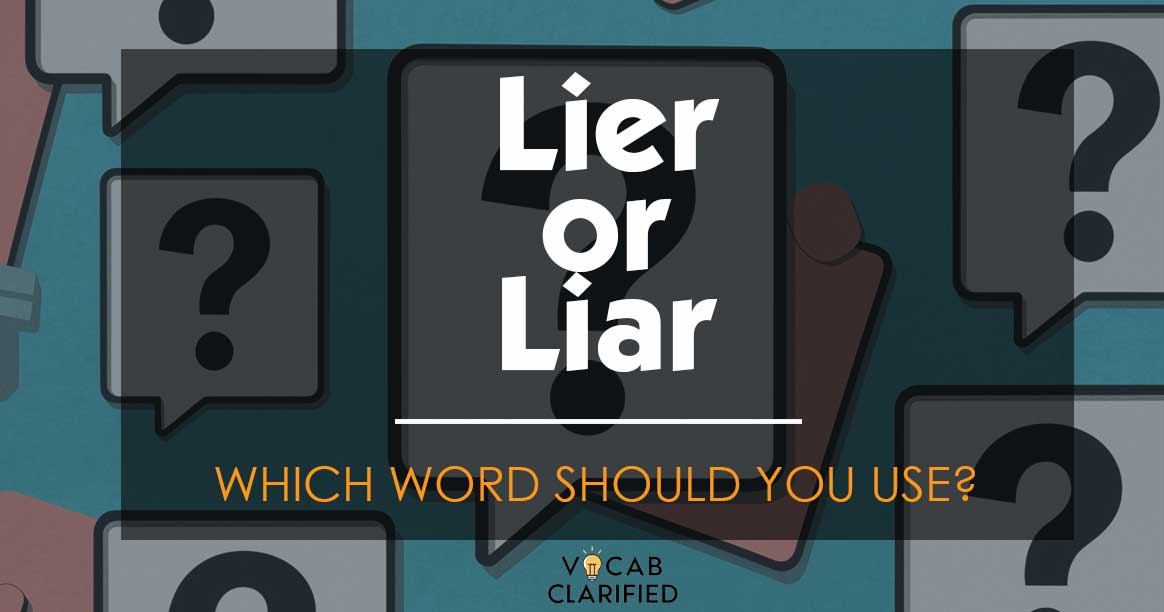When writing or speaking, the terms lier and liar might seem similar, but they have completely different meanings. The confusion between these words is common due to their close spelling and pronunciation.
This post will help you understand the differences and know when to use each term correctly.
Lier Or Liar: What’s The Difference?
Imagine you’re describing someone who is not being truthful or someone who is lying in wait. Which word should you use: lier or liar? If you’re unsure, you’re not alone. Let’s break it down.
Understanding Lier and Liar
Liar: Definition and Usage
Liar refers to someone who tells lies or speaks untruthfully. It is commonly used in situations where a person intentionally deceives others.
For example:
- “He is a compulsive liar who never tells the truth.”
- “She was caught in a lie, proving she is a liar.”
The word liar is a noun, and it always refers to a person who lies.
Lier: Definition and Usage
Lier, on the other hand, is much less common. It refers to someone who lies down or is in a lying position, typically in a literal sense. It derives from the verb lie, meaning to rest or recline.
For example:
- “The cat is a quiet lier in the sun.”
- “The soldiers were liers in wait before the ambush.”
While lier is grammatically correct, it’s rarely used in modern English, and phrases like “lying in wait” or “someone who is lying down” are more commonly seen.
Side-by-Side Comparison
| Aspect | Liar | Lier |
| Definition | A person who tells lies | A person who is lying down or in wait |
| Common Usage | “He’s a habitual liar.” | “The cat is a quiet lier in the sun.” |
| Key Differences | Refers to dishonesty | Refers to someone lying down |
When to Use Lier or Liar
- Use liar when referring to a person who is being dishonest.
- Use lier when referring to someone in a lying position, although this is rare.
In most cases, liar is the correct and more frequently used term.
See also: Lier Or Lyar: Clearing Up The Confusion
Everyday Usage Examples
Here are examples of how lier and liar can fit into everyday language:
- “He lied so many times, it’s hard to believe he’s not a liar.”
- “The police called him a liar after uncovering the truth.”
- “The dog is a lier in the yard, enjoying the warm weather.”
- “The soldiers were liers in wait for the enemy’s approach.”
- “She became known as a liar when her secret was revealed.”
- “The cat is always a lier by the window, basking in the sunlight.”
Conclusion
In conclusion, liar is the word you’ll use most often, as it refers to a person who lies or deceives. Lier, though technically correct, is seldom used and refers to someone lying down or hiding in wait.
Understanding the difference between lier and liar will help you avoid confusion and use each term appropriately in your writing and conversation.

